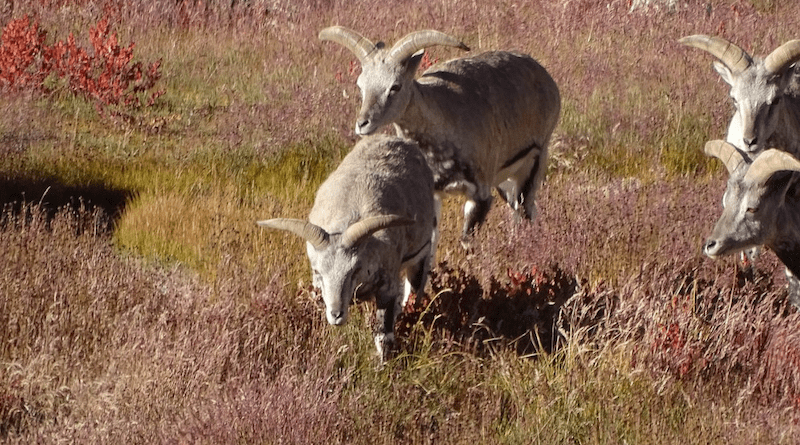Antibiotics In Livestock Dung ‘Harming Soil Quality’
Antibiotics used on livestock can impact microbes in the soil and negatively affect soil carbon, reducing resilience to climate change, claims a study conducted in India’s trans-Himalayan region.
Maintaining soil organic carbon can mitigate against climate change, land degradation and global hunger, offsetting greenhouse gas emissions caused by human activity, according to the Food and Agriculture Organization of the United Nations (FAO).
Results of the study, published February in Global Change Biology, found native herbivores such as yak, bharal (blue sheep), kiang (wild ass) and ibex in the Spiti valley, in India’s Himalayan state of Himachal Pradesh, to be healthier for soil carbon than livestock, which includes cattle, goat, sheep and horse. “Microbial carbon use efficiency was 19 per cent lower in soils under livestock,” the study said.
The researchers set up 30 fenced, paired plots for native herbivores as well as livestock and studied their differential impacts on the soil carbon during the 2005 to 2016 period. The aim was also to find out the different impact on plants and microbes to grazing by livestock and that by native herbivores.
Sumanta Bagchi, an author of the study and assistant professor at the Centre for Ecological Sciences of the Indian Institute of Science in Bangalore, says that livestock can disturb soil microbial communities, which is detrimental to carbon use efficiency and ultimately also to soil carbon.
Supporting evidence in the study pointed to a link between veterinary antibiotics and soil microbial decline. “Our study suggests that conserving native herbivores together with better management of livestock can go a long way towards improved soil carbon stewardship to achieve natural climate change solutions,” says Bagchi.
The study evaluated factors that influence soil carbon quality and quantity such as dead plant matter, microbial biomass, and microbial community composition as well as traces of veterinary antibiotics in the soil.
Livestock in Spiti was found to be frequently treated with antibiotics such as tetracycline. Meanwhile, veterinary care for native herbivores, such as yaks, was rare and practically absent for ibex and bharal.
Plots where livestock grazed exclusively were found to contain nearly three times more tetracycline residues than those populated by native herbivores, soil analysis showed. Excluding grazing animals resulted in the depletion of antibiotic residue in fenced plots and this reduction was greatest in plots containing livestock, soil analysis showed.
“Our paper focused on climate impacts linked to the use of antibiotics for livestock rearing but there are other undesirable consequences such as the accelerated evolution of antibiotic resistance which is a global trend,” says Bagchi.
“The misuse of antibiotics in livestock rearing is certainly a serious and growing phenomenon with many ramifications, including negative impacts on soil microbes and soil organic carbon,” says Krishna Gopal Saxena, an independent consultant on ecosystem conservation and former dean at the School of Environmental Sciences, Jawaharlal Nehru University, New Delhi.
However, antibiotic misuse in livestock rearing is only partially responsible for depletion of soil carbon along the Indo-Gangetic plain and contributes to climate change, said Saxena. “Factors behind the loss of soil carbon include, irrigation, the use of chemical fertilisers instead of organic manure, temperature and rainfall and climate change itself.”
“Temperatures rising from climate change and antibiotics in livestock dung are both known to disrupt soil microbial communities resulting in the degradation of the efficiency of soil microbes in trapping carbon,” says Malvika Chaudhary, a biocontrol specialist with CABI’s office in India. CABI is the parent organisation of SciDev.Net with its main office in the UK.
“This study confirms the effects through a long-term study,” Malvika adds.
Ranjit Devraj writes for SciDev.Net’s Asia & Pacific desk.
This piece was produced by SciDev.Net’s Asia & Pacific desk.

